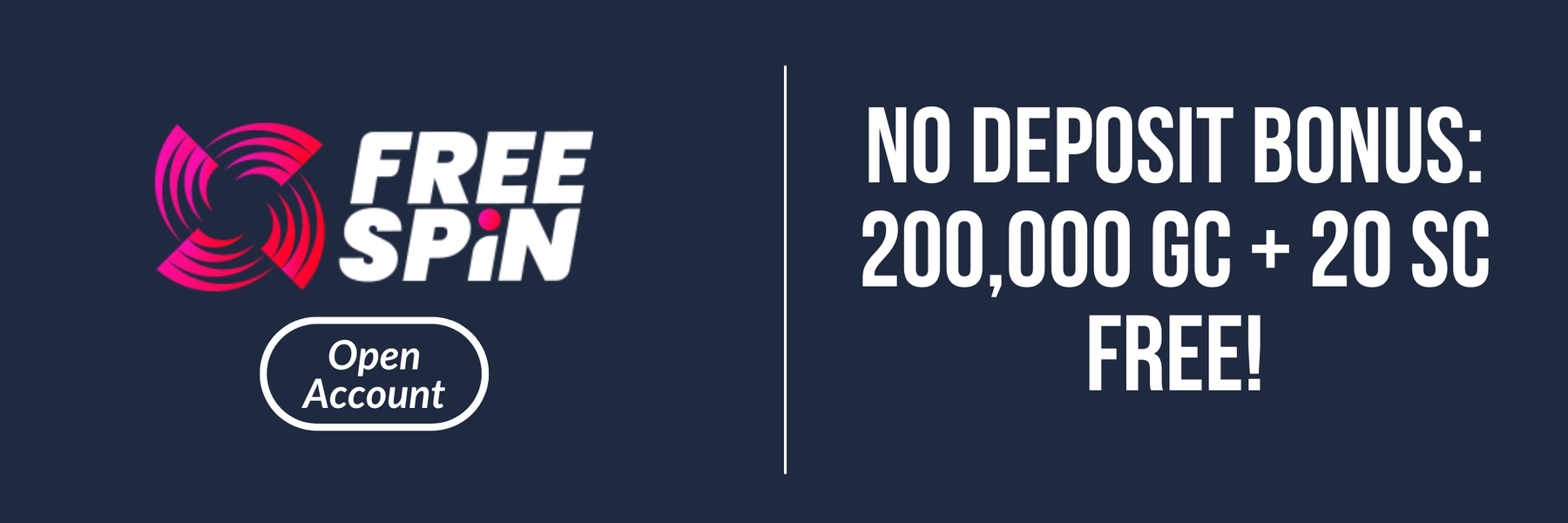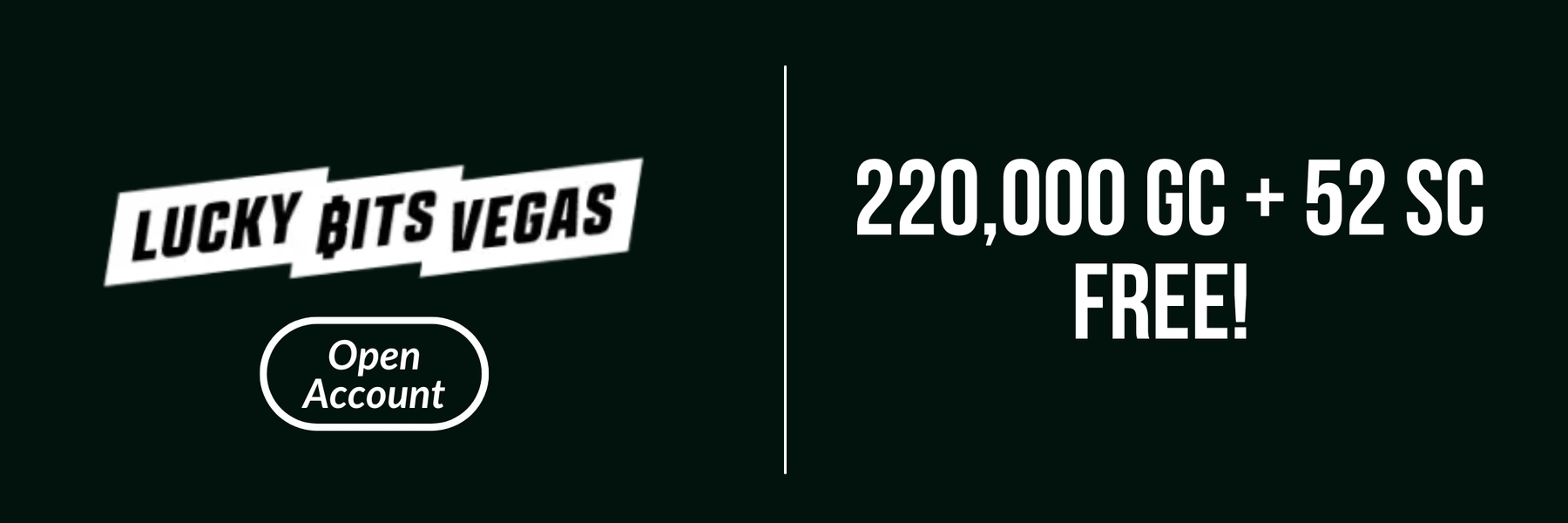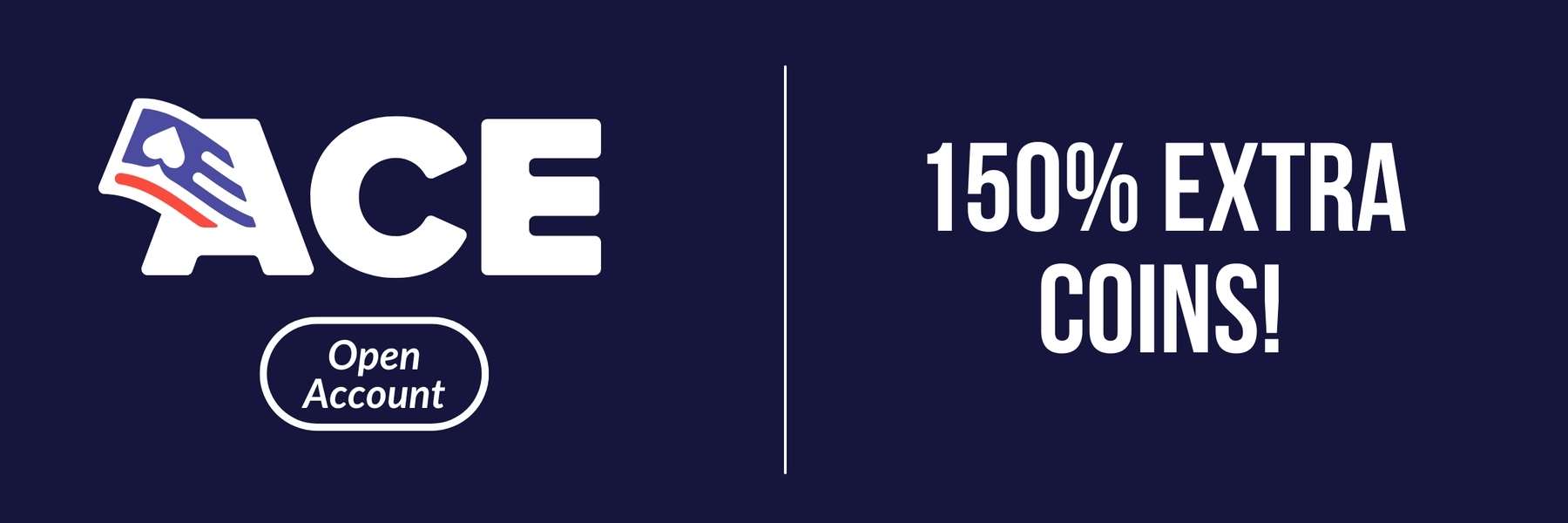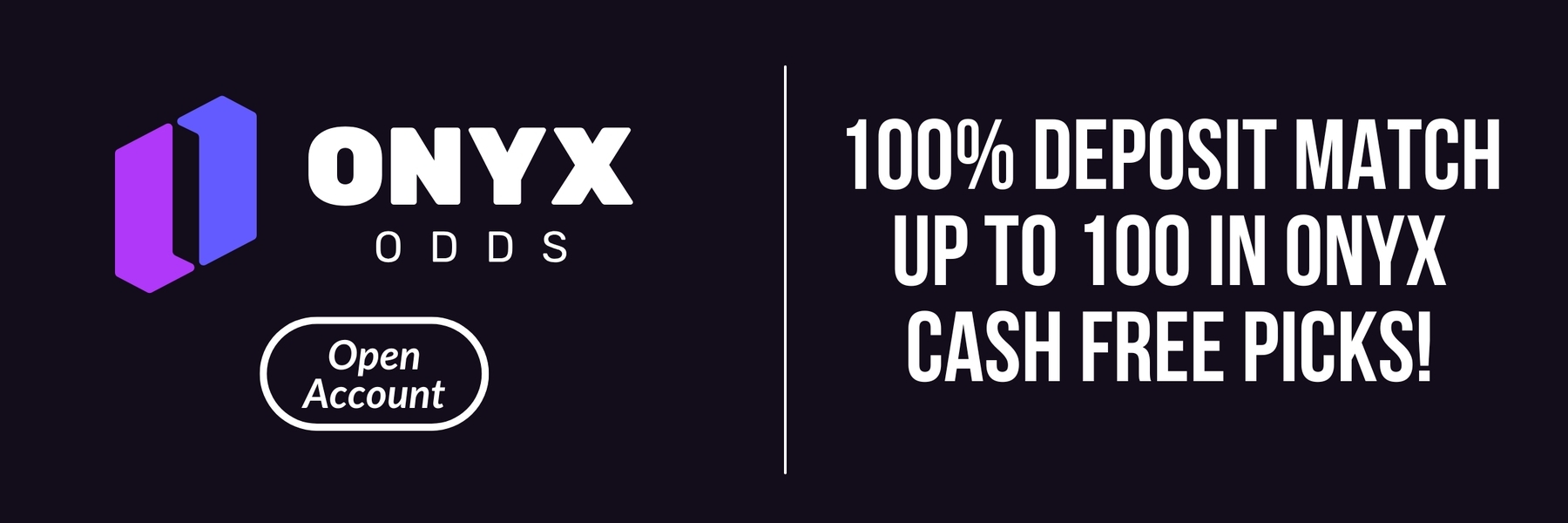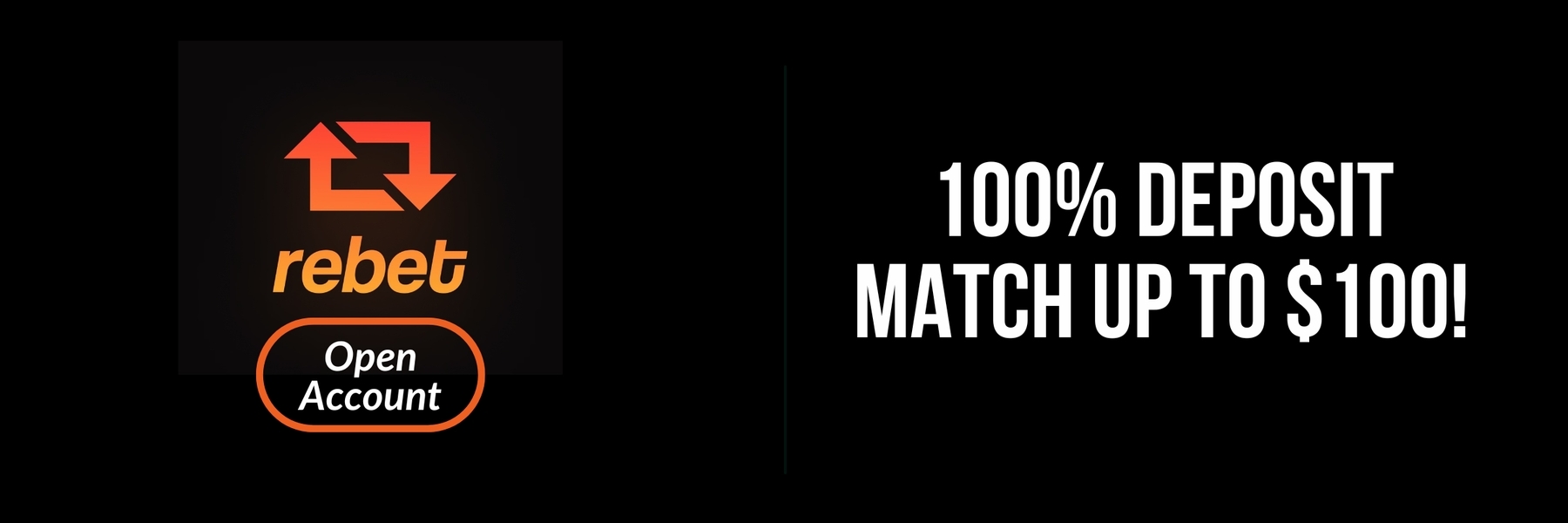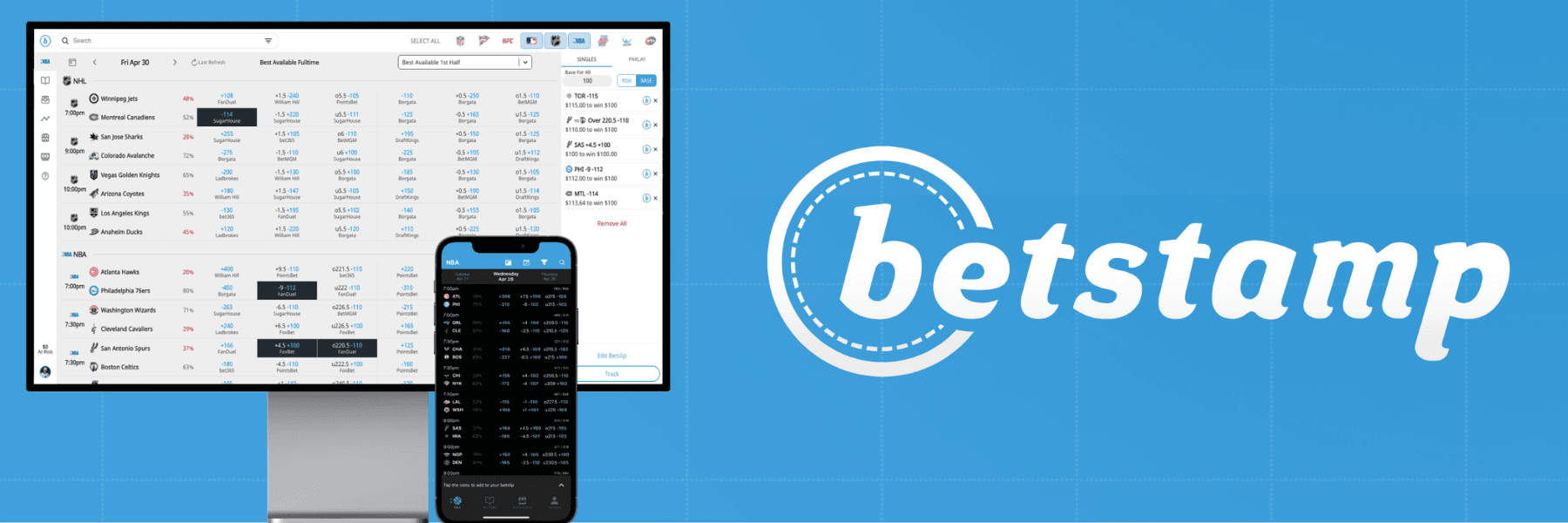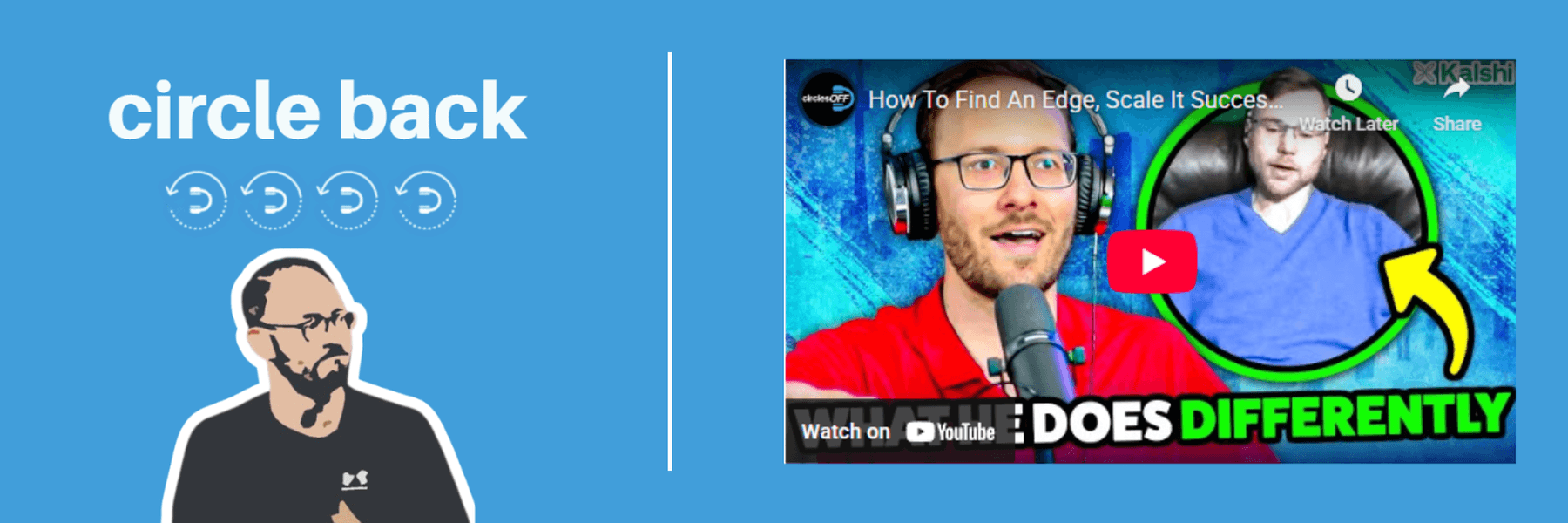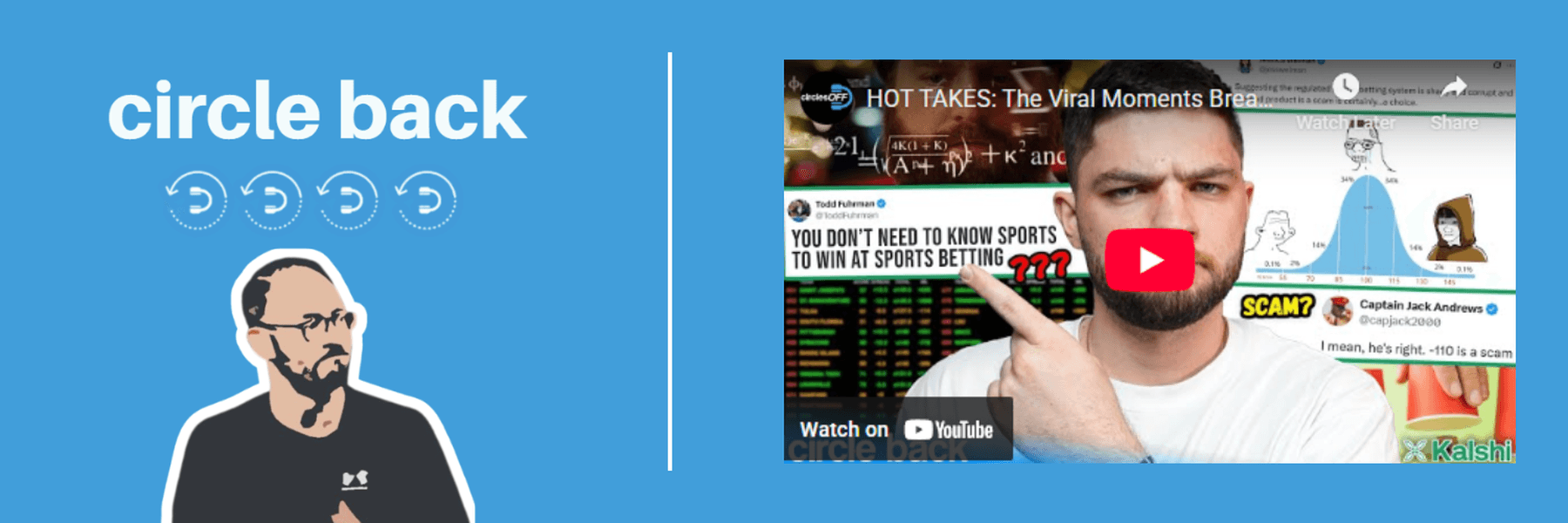00:00 - CountDaMoney (Guest)
Where I think I can get some edge is. I think that otherwise smart people sometimes bring bias into political betting. Like about maybe half a year ago, I heard from someone I respect a lot that there was a very sharp syndicate trying to get $10 million down on Michelle Obama to be the Democratic candidate.
00:24 - Rob Pizzola (Host)
Come on, let's go down on Michelle Obama to be the Democratic candidate. Come on, let's go. You think I'm going to come on here and put one of the oddities in the elite tier? I'd vote for Rob of 25,000. I wouldn't vote for him. I could basically just cheat and get the same bets that they're getting. It's weird because you can also pay your bills at the same place where you bet. I mean, you're a short guy, what this?
00:48 - Zack Phillips (Co-host)
guy talks a lot of trash. He's talked a lot of trash about me, rob, a lot of people in the community, but he's refusing to show his face.
00:54 - Rob Pizzola (Host)
Clowning yourself as a pretty good NFL gambler. I thought you were an idiot. Say testing, testing. I'm a cuck.
01:00 - CountDaMoney (Guest)
One, two, three four Aussies, two people, yeah, the aussies, going head to head with the aussies. That's what I drew for and I said get him kirk and they call me a mean-spirited name.
01:09 - Rob Pizzola (Host)
I don't hang out with him.
01:10 - CountDaMoney (Guest)
The toronto maple leafs at 14 to 1, staring me dead in the face I'm already getting uh, you know a lot of uh, a lot of a lot of early. This could be the best circles off episode we've ever.
01:21 - Rob Pizzola (Host)
That's ever been done welcome to circles off episode number 172 right here, part of the hammer betting network and presented by pinnacle sportsbook. I'm rob pazola flying solo. Today. We got fake johnny in studio over here. Zach phillips behind the glass producing as well. We got a guest episode today. But first a a few orders of business. We did promise last week we were going to give away a Circles Off hoodie. The winner of that hoodie, by identifying Johnny right behind Austin Matthews in the first row of the newly mounted picture in the studio, is at Henry Stotts on Twitter. Henry Stotts, dm us at CirclesOffHQ. We'll get your address, we'll get your sizing, we'll ship out a hoodie. These are nice hoodies. We are going to give away more in the future here. Pretty solid.
02:17 - Zack Phillips (Co-host)
Yeah.
02:18 - Rob Pizzola (Host)
I like them yeah.
02:20 - Zack Phillips (Co-host)
It's got those Got some other stuff coming as well.
02:23 - Rob Pizzola (Host)
There we go. So that's first order of business. Second, we're gonna be rolling out some Q&A episodes in the next month or so. We like recording Q&A episodes. We seem to get a lot of questions that we just can't answer over. Some people will be like, oh you should do an episode on this. Well, we can't do a full episode on it because it requires maybe a five minute response.
02:45
There's lots of things we want to get to here, but Q&A episodes are coming up in the near future. So I would ask if you want to contribute. Respond in our comments down below Any question you want us to answer. We'll do it on the show. You could email us at circlesoff, at thehammerbet, or you can DM us on Twitter at CirclesOffHQ. Alternatively, we will put out some calls to action both on YouTube and on Twitter. You can just respond directly to either of those as well. No question is off limits. We encourage as many as possible and we'll try to get to as many as possible over the next month here as we roll out some Q&A.
03:24
Finally, it is football season and I want to remind you Pinnacle is the world's sharpest sportsbook and available to bettors in Ontario. We preach line shopping here on Circles Off all the time. It's one of the most critical aspects of sports betting. I would never consider betting without a Pinnacle account as one of my sportsbook accounts because of their everyday competitive odds. That are betting without a Pinnacle account as one of my Sportsbook accounts because of their everyday competitive odds. So bet smart, bet Pinnacle, your trusted Sportsbook for the past 25 years. And if you do sign up to Pinnacle in Canada, use code HAMMER to do so. It does help support the show here.
03:59
Keeps the lights on. Pays producer Zach's salary. It's very important. You must be 19 plus, licensed in Ontario, not available in the US. As always, please play responsibly. Our guest this week is a former lawyer turned sports better. He's known in the betting community for specializing in predicting futures markets, including major pro sports awards and political markets as well. You can follow him on x at count underscore. The money reminds me of the simpsons back in the where's the monies? Where's the monies? Count joins us today on circles off. How's it going?
04:34
great glad to be here yeah, glad to have you as well. Uh, you've been highly requested in this community. I don't know a whole lot about you, but over the past month or so, uh, there's a lot of people. You gotta have this guy on. So we're having you on. I did research you a little bit. Obviously I know your real name and we're not gonna reveal it here, but you started in finance, you then went into law. Now you're in betting. Walk us through that transition in your life and how you got from law to the full-time betting world.
05:03 - CountDaMoney (Guest)
Yeah, I mean I think, like a lot of guests, like I've been sort of betting my whole life in some form or fashion. I actually just got married and a large part of my dad's speech at my wedding was about how, when I was in junior high, I was in a football pool with him and his like lawyer buddies and would typically do very well. I now think that if I had the benefit of this program, I would have done even better. There was a lot of ways to get plus EV with those guys for sure. But yeah, so I started betting more seriously, I'd say, in law school and kind of like increased my amount that I was staking every year into practicing law and got to a point where I felt like the success was sustainable enough and the law job was also fairly stressful. So I thought it was a good opportunity to go on, do this more seriously but also allow to do other things as well.
05:57 - Rob Pizzola (Host)
Very interesting that one of the reasons you left law was because the job was fairly stressful and then went into sports betting, because a lot of sports bettors, including myself, would say that this is a profession that also comes with a lot of stress.
06:13 - CountDaMoney (Guest)
Yeah, I think that that is very fair. I think that A I find futures to be less stressful. I have done lots of more day-to-day betting. It's not really for me. I have done lots of more day-to-day betting. It's not really for me. I don't like the sweat of it and I don't like the runs. But I think that you know, especially like back then, when I didn't find it very stressful, I wasn't actually staking that much and what I was staking was from stuff that I had already won, so there was a confidence in it that way. Now I just sort of feel like I know what I'm doing and therefore I don't find it that stressful. But actually you're catching me at a time where, like, all my money is like outstanding and I'm like I'm not sure I'll win a single one of these bets. So you, it comes back and forth.
06:55 - Rob Pizzola (Host)
Yeah, so a little bit of stress is peaking, creeping in. Over the last little while here you mentioned that you did some day to day betting, but now you focus more on futures markets, so less traditional markets. Oftentimes people have a story in the sense of there was maybe one future that really got me over the edge and I realized that this was for me. Is there a specific future that sparked your interest in keeping this going full-time?
07:26 - CountDaMoney (Guest)
yeah, I'd say maybe two things. So the first is that I think this, the first future I put some actual money on, was patrick mahomes, mvp in his sophomore season, really his rookie year. He played one game the year before and I got it at 70 to 1. Um. After one week he was down to like 10 to one. After a couple weeks he was in in the minus and, uh, turns out, I just sort of got pretty fortunate there because it gave me some good confidence.
07:54
And the other one would be betting the 2020 US election. Um, that was something that you know. Now, talking to a lot of sports bettors, I think like it seems that everybody I talked to if they have any inkling for futures was on Biden in that election, just because his price and market diverged so much from, like, the reputable public models. I mean, I didn't know that, that it was like so obvious to everyone at that time, but that was definitely a ride. The night of the election is probably the worst into best night of my life. Luckily, my partner, who's a doctor, was on call, because I was a very sad state of affairs until about two in the morning.
08:37 - Rob Pizzola (Host)
Without giving away too much information. You're Canadian. We talked a little bit off air going into the show here, so you're betting into the US politics markets in 2020. And presumably you have a lot of money tied up. You mentioned you had a lot of money tied up. I'm just inferring that some of that is this upcoming election as well. You can correct me if I'm wrong, but I'm very interested in talking about the political markets because these are highly liquid markets. We're talking to people who wanted to get seven figures down on the upcoming US election. They could do that without hesitation. It'd be fairly easy to do that. What do you think separates you from others competing in the same space? Because it's kind of weird for me to hear a Canadian talk about having one of the biggest bets I've ever had on the 2020 US election.
09:31 - CountDaMoney (Guest)
Yeah Well, first of all, I think the landscape has changed a lot. But, to start, I don't at this time have any data edge in political betting. I consume the same public models that are available. Maybe I'm slightly more online than some people and maybe I know good people to follow, so I will be very unlikely to place a straight US election Harris or Trump bet from now until the end of the election, other than maybe balancing out what I have. Where I think I can get some edge is I think that otherwise smart people sometimes bring bias into political betting.
10:11
Like about maybe half a year ago I heard from someone I respect a lot that there was a very sharp syndicate trying to get $10 million down on Michelle Obama to be the Democratic candidate and I got that on an airplane and obviously we can get into why that worried me because I had a lot of money at the time on Biden to be the candidate, which ended up being fine.
10:38
But I was nervous and I was on my horrible Air Canada Wi-Fi. I'm trying to figure out like where is this coming from? And, to the best of my knowledge, it traced to some like lunatic Fox News article from someone who was not a straight news person was like an opinion person, like obviously she'd be an amazing candidate and I think people have often wish casted that she would be the candidate. But you had to take every statement she's ever been on the record of having zero interest in that to think that that was a sharp bet. So I said to the guy at the time I'm like you know, maybe there's some inside information, but I'd be truly stunned. So I think that type of thinking can be pervasive, not in a market like this one at this time, but I think that presents opportunities.
11:24 - Rob Pizzola (Host)
What do you think of the public models that are often out there for the election? So this is just, you know, for full transparency to the audience here. I am by no means seasoned with political betting. It's not an area of that I excel at. I have followed Nate Silver for many years. I remember he used to have his election model up on 538. I don't think that he does anymore. I think that's been replaced by someone else now. But I used to see on gambling Twitter a huge back and forth in regards to Nate Silver, some people really defending him of like this is the guy to follow in the space. Others really pointing out what they perceive to be flaws in his process in putting together that model. Are there any public models that you frequently look at that you would think are, you know, rather predictive, or do you think that most of it is just again creating some sort of other bias for you?
12:21 - CountDaMoney (Guest)
Yeah, I mean, to my knowledge, I think he's the best guy in this space. I don't think he's infallible, but he's gotten a lot right, or at least closer to right. Like this is all highly probabilistic stuff, so sometimes people take the wrong lessons from being like oh my God, you had Clinton as like a 73% favorite. Well, he had Trump higher than anyone else. So I think he's also very transparent about what he's doing. There's no than anyone else. So I think he's also very transparent about what he's doing. There's no black box there. But I think market has just caught up. Like I think he leads market as opposed to the other way around. At this point, his new thing is on something called Silver Bulletin. Someone else the old guy from the Economist replaced him at 538. And they had a bit of scandal with their model. But yeah, I think Nate's good, interesting.
13:13 - Rob Pizzola (Host)
It's also my understanding from other people that I've reached out to in the space that you're heavily involved in awards betting futures, which fascinates me as well, because I actually really do like these types of markets. They're a little bit different than a more traditional futures market where you're just kind of betting on an outcome but it's going to be decided on the field, basically, or on the ice or whatever. With these specific markets, could you walk us through your process in betting them? Do you create fair prices on the different potential, create fair prices on the different potential options or candidates, I should say, in these awards markets? How do you go about modeling these types of things, if you even do model them, so to speak, when there is human decision making at stake and a big factor in this as well?
14:00 - CountDaMoney (Guest)
Yeah, there's a lot of good stuff in there. I definitely do price these markets, but I will say and there's a lot of ways you can go about that I think one exercise that's laborious but very helpful is actually trying to go through and assign a probability to each person in a market. Now I usually have a thing at the end that says field. I'm not going through to like some guy who would be a thousand to one, but even figuring out what, like a field should represent in a certain award I think is an important piece to it. Um, and I think just having to compare people against each other helps you sort of figure out where they might be.
14:55
Other awards are are very subjective and they cannot really be anchored in probabilistic thinking like Like tomorrow Hamlin comeback, player of the year Sad that that loss comes to mind for me, where you know I would have been speaking to smart people at the time, thinking, like you know, if he gets on the field, I think he's like 80, 90% to win this award. At the time he was minus 110 when it came out that he was going to play. I mean, what can you draw on there? You can look at Alex Smith in the past. He came back from a horrific injury. He went pretty much off the board. The second he played a snap. He didn't play particularly well, he won going away. So that's somewhat bullish and yeah, I mean I thought he could lose to outlier cases like rogers, maybe coming back the same season and whether or not flacco fits in that. You know 20 to 10 percent that I was allowing for. You know he came became such like a phenomenon.
15:58 - Rob Pizzola (Host)
Uh, that's a live question yeah, I uh I also lost money on damar hamlin and I was very confident that he was way underpriced early in that market. I felt very strongly that if he played he would win it, just because of the human factor in voting and that's one of the challenges I see with these markets in particular is accounting for the subjectivity of voters when you're doing the analysis, because it's almost not who do I think is most deserving, it's who do I think other people are going to think is more deserving, and that, to me, is a very different problem to solve.
16:43 - CountDaMoney (Guest)
Yeah, and that's, by the way, why I think certain type of political betting not really the straight up Trump, harris stuff is quite similar to awards betting, like if you're looking at who's going to win a primary, you're not you should not be saying which candidate do you do I find compelling, it's like which candidate do I think other people will find compelling. So it's. I think it's a somewhat similar skill. I will say as an aside that I think the more the proliferation of advanced stats happens and the more there's like daily conversations about these things, the more the person who should win does win these awards Not always, but I think that is something to keep in mind. And I also think, think, yeah, the fact that it's human people puts a massive premium on being able to, as a skill, determine what is going to resonate with other people yep, totally agree with that.
17:37 - Rob Pizzola (Host)
Um, some awards markets in particular have different scoring systems um than others, so to speak. There have been some markets that have gravitated towards okay, each writer is going to rank their top five and there's some sort of scoring system there. How long did it take for you? I'm sure this is built into your edge a little bit right now and it's become public knowledge over more recent years, but how quickly were you to hop on to these changes in voting and how much do you think that that contributed to your success in awards betting?
18:15 - CountDaMoney (Guest)
yeah, I would view it as like an edge of many edges. That's something where you can distinguish yourself. I think you certainly want want to know the scoring system of any award you're betting on. You want to know the composition of the voters. You know hockey outside of Jack Adams and Vezna has a 200-person voting block, whereas football has a 50 person voting block. So I, with everything else equal, expect less variance, more predictability, less outlier winners in hockey awards, as I do in NFL.
18:56 - Rob Pizzola (Host)
That makes a lot of sense. I used to and I still do listen to you Better you Bet. But I used to listen to one of my favorite people in breaking down futures markets, which was, uh, ken barkley, who we've had here on circles off, also known as as locky lockerson, and this was kind of his niche and his bread and butter, and, for those that don't know, he recently left the show to pursue full-time futures betting as well. Um, so obviously found an edge in this market. When I would listen listen to him a lot of times he would break down past trends in specific markets and use them for future predictive value.
19:36
Just as a rough example looking at, maybe coach of the year in the NFL, go back for the last 20 years or so. Who are the most likely candidates to win? Well, most of the candidates that, or most of the people that end up winning this. Their team didn't make the playoffs in the previous year. They improved by their win total, season win total by, you know, four wins on average. I'm just throwing random stuff out there, but he was a big believer in using past predictors to predict future success. What's your stance on that and your viewpoint? How much does that come into the equation for you.
20:14 - CountDaMoney (Guest)
Yeah, I mean, I think that you'd be very silly to not be alive to and to intimately understand what has happened in the past. There's no downside and it's going to help inform your viewpoints. But I would say where perhaps the leap is is realizing that just because something hasn't happened in the past doesn't mean it can't happen. I mean, I like to think sometimes, like someone says doesn't mean it can't happen. I mean I like to think sometimes, like someone says this has never happened, like it doesn't happen, it's an unwritten rule. I like to think, like, how much has that been stress tested? Like, was there a really great case that tested that thing that you don't think can happen? There was. Maybe I would change my view on it, but I have found both embedding and in life, you know, shifting my parameters as to what is possible is very helpful.
21:10 - Rob Pizzola (Host)
Yeah, it's very interesting to handicap in that way, and futures markets are very different from day-to-day sports betting. But if I saw someone handicapping NFL games using strictly past trends, I would almost immediately assume that they're losing better, because you can find a lot of trends that can fit your narrative for the side you like in the game. Also, a lot of them are just not going to be predictive because the market will often catch up to these trends, one example being maybe a West Coast team playing an early game on the East Coast, which was a thing 20 years ago, but travel became better, teams are more equipped to deal with that time and also, it just got factored into the market where people are betting, an angle that doesn't exist anymore. But in futures markets I see more and more people who just handicap that way, which is like this is historically what's happened, and it's really hard for me to wrap my head around that honestly, as someone who bets day to day, because it's extremely counterintuitive to the way that I think handicapping should be.
22:17 - CountDaMoney (Guest)
Yeah, I mean, I think certainly the guy who told tells you like well, I think the funniest one is like baltimore is oh and seven in their last seven games against buffalo or whatever. I mean, that's just that has literally nothing predictive. I mean, I suppose maybe something if it's somewhat recent, but, um, that I think is a sign for someone who doesn't really know what they're doing. I think having a very rubric-based I'm going to learn every rule and precedent is helpful, more so in awards, certainly, than betting, because we're looking at what these group of humans though they can change have done in the past, as opposed to we're looking at how teams have played against each other. So there's a slight distinction there, but I agree with you that you do well to not get too, too anchored into that.
23:09 - Rob Pizzola (Host)
So right off the top here, count we were. You know you joined and you're talking about how you have a lot of stuff in play right now that's going to be settling, coming up here And're hoping you win something if you might not. I'm very curious on how someone manages a futures portfolio relative to most sports bettors where their money's turning over every day, right like I. I, worst case, I'm going to be betting something for this upcoming sunday and it's going to settle in my account in three days and I can just either, if I win, I can roll it over again. You You're looking at markets where you might have money tied up for a long period of time. How do you manage your overall portfolio and your bankroll when you're dealing with these types of markets?
23:51 - CountDaMoney (Guest)
Yeah, I mean a couple things there. So I am sort of betting throughout the whole year, more so in the season than before the year begins. But I'd certainly do that as well, like everything I have right now I mean NFL just started is mostly preseason stuff, and that's definitely been a big shift for me, which is that I think I see a lot of content, to the extent that there is awards content and features, content on Twitter being about like building a portfolio and I hear people say things like you know, this guy's not going to win, maybe he's 100 to 1. He's not going to win, but he's going to have a moment. He's going to be in it at a point. He's a great chip to have in your portfolio.
24:35
Like, I don't think like that. I am betting on people whose fair odds to me are less than what the posted odds are and in line with that old sort of way of thinking I used to like, let's say, I had the favorite and someone else looked scary, I'd bet them for the same amount to win and I'd start whack-a-mole, picking people off and sort of guaranteeing that I was going to win money on the NFL MVP award. I have since shifted to, you know not caring that I have to win money from every award. I care more about everything I have and I think that to the extent that I leave somebody in one award unhedged and I have another person unhedged in another award and they're both true 50%, I'll let them take care of balancing my portfolio. The wins will come when they come.
25:28
I should say that I used to be like very anti-hedging. After being so pro-hedging I know you guys had that big discussion with Frank about logarithmic bankroll, that's, you know's above my pay grade I would say that if I have really life-changing money on the line, I would hedge it, maybe even something slightly negative. I'll always hedge it neutral and certainly I would always hedge if it was plus EB. But I wouldn't even view that as hedging. I would just be betting on another person who I think is a good bet.
25:57 - Rob Pizzola (Host)
How do you determine whether you have an edge in the long run in these types of markets? Because I'm assuming, and I'm just making an assumption. You correct me if I'm wrong, but I'm assuming in a lot of these cases you're betting big prices Maybe not like insane, like people think, because again, you're saying that you're typically filling positions where you think somebody. You're viewing it probabilistically. This is my number, this is the market number. I think this is an edge here. I'm not just taking shots for the sense of taking shots, but in these types of markets, if you are betting bigger numbers, you could have prolonged losing streaks. So I wonder, I mean, are you a big believer in efficient market hypothesis where, okay, I collected this person at these prices and now there's something completely different? How do you measure or gauge what your edge is in this market?
26:50 - CountDaMoney (Guest)
Yeah, I mean, I would just view it as like I'm kind of looking at my bankroll at the end of the year and I think like, uh, I'll actually correct you on one thing as well. Like I think earlier I was really opposed. I think if you have a small bankroll it can be very attractive to bet only long shots. You don't have to tie up that much. There's big potential payoff. I am now really agnostic about it, except about prices. I will bet.
27:18
You know, rudy Gobert last year was minus 300, minus 400. When, once he hit the health requirements, he should have been off the board. So that's an amazing bet. It's just like how much. It's just hard to get down that much when something's in. You know the negative. So that would be the only bias I have to bigger prices. But I think there's I hear people say all the time like, oh, it's, he's an amazing bet, but like there's so much juice, like that's not for me. Um, that's not how I think, uh, but yeah, I judge success basically just seeing how, seeing how I did at the end of the year, I don't really think, um, yeah, sorry, I'm also. You're basically saying a thing like if you get clv, is that important right. It's definitely nice when you spot something and then you know you see it go from 100 to much shorter. That that's definitely reassuring that you uh, you might have had something, but the market will get lots of things wrong as well.
28:16 - Rob Pizzola (Host)
So if johnny was here, which he's not today he's a little bit under the weather, but If Johnny was here which he's not today he's a little bit under the weather, but if he was here he would challenge you on this. So I'm going to challenge you on this a little bit. Let's do it, Because I'm in the same boat as you and so would Johnny, in the sense that, hey, if you have value on a minus 300 favorite, you make the fair price minus 700, whatever. Bet it. Like you know, yes, you could have some variance in your number. That's off, and maybe you're not calculating your edge perfectly, but if you view it as an edge, bet it.
28:49
Some people just make arbitrary numbers where they're like ah, you know baseball, I don't bet a team over minus 160, I don't do this. But where he would push back is and I'm just using a fictional number here just so that the audience knows but you could bet a minus 300 and you could put $100,000 on that minus 300 to win a specific award. But you tie up that money for four, five, six months at a time, in some cases maybe even less. Would you just be better served to calculate an edge in a day-to-day market and invest that $100K into another type of market? How big could these edges be where you feel that it's worthwhile to actually tie up the money for that period of time?
29:35 - CountDaMoney (Guest)
Yeah, I mean going back to this Gobert example. I feel very confident that minus 500 was available when the true price was a hundred percent, so in that case, I think anyone would take that. You know, 1.2 return, yep, and that price. That became to me uh, some people call things that are big gaps. At rort, that happened to also be near the end of the season, so you didn't have to tie it up that long. But, yeah, certainly there are. In the 2020 election, I bet a lot of money on the Democrats to win the popular vote, which I think I showed an edge on, but it wasn't worth tying it up for that long. So that's a lesson I learned.
30:23 - Rob Pizzola (Host)
So I'm glad you mentioned that, because that was going to be the follow up. For me is is does the amount of time that you would have to tie up the bet for come into consideration for you? And it sounds like the answer is yes.
30:34 - CountDaMoney (Guest)
Yeah, I mean, I'm not, I'm not. I don't have like a formula or something like that. I'm not really looking at time value of money because typically I'm not entering into bets that would be marginal enough that that'd be concerning to me.
30:49 - Rob Pizzola (Host)
Interesting In regards to a full season of sports, and I'm sure this varies from sport to sport. You've talked about basketball, you've talked about hockey. You've talked about political markets. I'm sure you do awards markets across different leagues. So I'm sure that there's a lot of variance in this answer altogether. But do you typically have more volume earlier in a season or later in a season? When do you see the biggest edges over the course of a year?
31:18 - CountDaMoney (Guest)
It's's funny I should like. Recently I've done something about with, like coding, coding bets about whether they were pre-season or in season. You're sort of pointing out that it would also be very valuable maybe to code by when in the season I'm doing it. I, I. If I was forced to give an answer on that, I would probably say it's fairly even. I mean, yeah, I'm really betting throughout the whole year. I couldn't necessarily say when, more than other times.
31:48 - Rob Pizzola (Host)
Okay, fair enough, so it's balanced. That's, that's fairly balanced. Are you operating all of this yourself? Are you working with any partners? How does how does that breakdown work?
31:59 - CountDaMoney (Guest)
Yeah, no, I do it by myself. I've got like a couple buddies that I have met through Twitter that I chat things through with, but generally by myself.
32:12 - Rob Pizzola (Host)
So you're operating as a solo bettor. Have you ever thought about working with other parties? I mean, in your mind, what are the benefits and the drawbacks to being a one-man operation?
32:26 - CountDaMoney (Guest)
I mean, I don't have to run anything by anybody, I just bet what I want to my risk appetite is what dictates it, some people might be. Appetite, uh, is what dictates it, like some people might be, you know, more conservative than me, or? Or more risk loving, um, and yeah, I, I think like it can be. I really do appreciate having people to bounce things off in a sense like maybe you would think of that as a partner. Not really, there's like not the financial interest, but someone that you trust and trust you and you're able to figure out. Sometimes, like some of these bets, you're like this could either be the best thing I've ever seen or it's like dead immediately. So running that by someone else who thinks through these things I think is helpful, and I guess I don't really know what it's like to be in a, in a group, and you found most of these people directly through social media, through Twitter.
33:30
Yeah, interesting. Now I've met some of them. It's really fun to be on a big future with someone. I went to the Celtics finals this year. I went to the Panthers finals last year, so when those come home, if I get something, that far I like to go, and it's that can be quite a good ride.
33:46 - Rob Pizzola (Host)
I've I've, uh, I've experienced, uh, someone who is very high on the celtics last year, who sat in studio with me to the right here maybe maybe some overlap being a fellow torontonian uh with me as well. But yeah, interesting, we don't have to get into that. I'm curious, in this market as well, from the day-to-day markets there's a. You know, I bet day-to-day sports, as does Johnny, as do most people in the pro betting space. That comes with a lot of automation. I can wake up in the morning, there's a lot of stuff available to me, data has been imported already, things of that nature. What is your process like? How much of this is a manual, day-to-day grind for you versus maybe an automated process?
34:35 - CountDaMoney (Guest)
Yeah, I mean it's all manual. I can certainly see things that would be helpful and I guess I've just been, I don't know, I haven't done them. I probably should do them, to be honest, it would make things a little bit easier. But obviously it's not such a big deal that I've done in them yet. But yeah, like when I think about the world, about getting into other types of betting like I hear you guys talk about props and it's like, oh, I think I could do that, but starting without something automated in place seems like I mean you can pick off the really easy stuff for sure, like I've heard you talk about you know, this guy's line mates out and he's now playing on the first power play, that kind of like sure, but to get like enough volume you obviously need to have much more of a process in place. So that's sort of maybe what prevents me from doing that, that first leap right now.
35:30 - Rob Pizzola (Host)
you've said you said to start that question, well, like it's maybe something that I should do, just out of curiosity, what? Why haven't you got to that point yet? Is it just? I mean, you might be operating efficiently even without it? It's very possible.
35:46 - CountDaMoney (Guest)
Yeah, I think whenever there's something obvious you haven't done, it's because it's not causing enough pain in your life to make you change it. My auto password for my bank account on my phone is wrong by one digit and I've probably wasted like 10 to 15 seconds for every time I go in. Why I haven't changed it unclear, but it's obviously not causing quite enough pain for me to change it yet.
36:16 - Rob Pizzola (Host)
Yeah, I truly resonate with that answer Like you can't. Even I can't understate, overstate. I can't overstate how much I resonate with that answer. I wake up to like 20 different emails in my inbox every morning which I'm going to automatically delete without ever reading. I could unsubscribe to every single one of those, but it's not painful enough that I've gone in to actually unsubscribe, but I think about the amount of time that I've wasted doing that and could have put that to much, much better use um, I wasn't signed up for automatic e-transfer like well past, when it was appropriate, you know.
36:54 - CountDaMoney (Guest)
So I'm often leaving these. Uh, lots of minus ev behaviors in my life, unfortunately that'll only resonate with the canadians, though I don't.
37:03 - Rob Pizzola (Host)
I don't believe that the americans deal with the uh, auto e transfer. I was in the same boat, as you always had to put in a password, put what you know. Somebody sends me. Here's what the password is, but they forget to capitalize the first letter of the word and then you're typing complete disaster that that, honestly, we're not even there yet. But plus EV move of the week would be to set up the auto deposit. Not even exaggerating for the Canadians out there In terms of betting this market, we talk about this pretty frequently here on Circles Off. You win at sports betting or you generate good closing line value at most sportsbooks on the planet, you're going to deal with limitations, either banned or limited. That won't happen to you at Pinnacle Sportsbook, by the way just another plug for Pinnacle but whatever their posted limit is, that's what they're going to take and they're not limiting you in the future. But that does happen in other markets. When you're betting futures almost exclusively, do you get the same types of limits, the same types of treatment as the day-to-day bettors?
38:09 - CountDaMoney (Guest)
Yeah. So to preface this, my understanding of how you get limited in the type of betting you do is from speaking to bettors, listening to shows like this and speaking to people who have worked at books For futures. It's like much more anecdotal, though I have chatted a bit with people from like books and stuff like that. I think the same types of things get you limited. You know if you bet on something and then the price collapse, that you're sort of closer to that moment when you're going to get booted. I do think sometimes some books I take this to be true, it's possible it's changed Some books are not really looking at you, grading you until your futures settle.
38:56
So that might give you a little more leg room. But like bet 365, like three good futures bets and you're kicked out. So, yeah, I think one thing I definitely learned is like I used to, at the very beginning, I was always like shopping around for best price. I don't do that anymore. That's definitely going to get. That's going to speed up your process of getting limited, for sure, but otherwise, like, my experience is probably fairly anecdotal.
39:28 - Rob Pizzola (Host)
That's actually a really interesting argument, because I obviously advocate for most bettors to shop for best price. In my opinion, you should. However, when you do reach a level of success like you're having in futures markets, it could actually be used against you. And that's an interesting perspective as well, because every little bit matters in sports betting. And if you're losing better and you're betting into minus 110 and continuously losing, well, all of a sudden, if you're betting into minus 105, you're now losing half the amount. And if you can cut that down further now you're in the point of like where random variants you could actually just end up being a winner over a small sample size as well. So interesting perspective on that. Have you ever been tempted to get back into day-to-day markets at all?
40:19 - CountDaMoney (Guest)
or is this just going to be the focus for you going forwards? Yeah, I mean, again, I hear all this stuff about props. It sounds good and fun, we'll see. Probably the same reason I haven't changed my bank password is why I won't get into props. But yeah, I was fairly successful at day-to-day betting, but I didn't really enjoy it. Um, uh, like recently, maybe a year and a half ago I was betting on something like quite niche that was game based and I was getting in really good like 100. I was showing huge clv and losing, like because of variance, and I just like was like this isn't, I can't handle this. This is not fun for me. I was like no, so I just stopped. Um, because that thing was like it was quite a grind. Uh, so I like the pace of futures and it makes it like I have fun things to root for the entire season. Almost every game I'm watching has something that I want to happen, so I will probably stick to this.
41:27 - Rob Pizzola (Host)
Lots of stuff that resonates with me from that answer. So the grind, I totally get it. It's not for everyone. I mean, maybe this is more of a personal question. You don't have to answer this, but what do you value? Are you betting for the money? Do you get a rush out of the futures betting? Are you betting for the money? Do you get a rush out of the futures betting? Do you like futures betting because maybe it gives you more time in your personal life to do other things that you wanna do Like? What are your core values that make this the right gig for you?
41:59 - CountDaMoney (Guest)
Yeah, tough question. I certainly like the prediction element to it that I think maybe is like higher than I. Just I make a number like an automated strong model that obviously is incorporating some level of daily stuff. I think there's a little bit more of like a prediction element to futures bets. I think I get some enjoyment out of that. Yeah, that would probably be it.
42:33 - Rob Pizzola (Host)
Okay, so you get excitement from trying to beat sports, but you don't like the day-to-day stresses that come with betting daily sports.
42:41 - CountDaMoney (Guest)
I think that's right. Yeah, that's right, I think I yeah.
42:45 - Rob Pizzola (Host)
You're not the first futures bettor I've talked to. I've talked to many before in a private setting. Don't want to reveal names, but it seems that there's a lot of overlap between the personas. I would say where that's a very common thing.
43:00
I loved what you said about. You know I could bet a future and I have a rooting interest in every game that they play going forwards and I don't actually have to bet the game on that night to have a sweat on that team. That's something I hear very often as well, which is actually, you know, for anyone who has problem gaming issues or anything like that, get those sorted. By the way, there's lots of resources that you can seek out to help you out. Get those sorted.
43:26
But if you want to lower your volume and you find that you are often chasing losses or whatever, I actually think futures markets are really good for this, because you can place one bet at a small stake in a lot of cases to win a lot of money and you can have something to root for pretty regularly. So I really like that that you said that, because I think it's something that does go unnoticed in the space as well. We've covered a lot here, count, given your success in the space. What advice would you give to somebody that's looking to specialize in futures markets or niche markets that maybe we haven't covered on the show yet?
44:05 - CountDaMoney (Guest)
Yeah, I sort of touched on this markets or niche markets that maybe we haven't covered on the show yet.
44:13
Yeah, I sort of touched on this, but I would say that it's I would say it again which is that if you're going to do this type of betting, that like widening your parameters for what is possible is really beneficial. Like, all the time you see people go into like big favorite status and I think some people just say you know what this is over, but they don't really discipline themselves to think about like well, how would things like feel if they, let's say, they're a baseball player? You know, if they went on like an over 20 streak, how would you know something else shift things. And you know you encounter a lot of people and I'm in comments sometimes being a propagandist about my future is just retweeting everything, but you see people be like it's this guy and it's not close and maybe they're just posturing. But I think that, uh, yeah, just having a wider appreciation for the tail outcomes of stuff is helpful yeah, I love that injuries happen in sports all the time.
45:16 - Rob Pizzola (Host)
People seem and when I say people, I may be just lumping you know the general public of rec betters all into one spot, but it's like, oh, this guy's sewn it up and it's like, well, no, there's. There's half a season to play and sure, he has great numbers relative to the field, but there's got to be some percentage chance of injury where now all of a sudden he doesn't win that award. Um, lots of examples like that. Um, I you know what really changed my perspective on the. Anything is possible, not not kevin garnett winning the NBA title or anything like that, but was Lester winning the EPL or the BPL? Back in the day, barclays, premier League, epl I don't remember the exact odds. I want to say you could have got like 600 to one or higher to start the season.
46:05 - CountDaMoney (Guest)
I wasn't that involved. I'm not a soccer guy. I was going to say something like 300 to one or higher to start the season, and it wasn't that involved. Like I'm not a soccer guy, I thought I was going to say something like 300 to one. Right, but I would take your word at it.
46:13 - Rob Pizzola (Host)
I could be wrong and I'm just. I'm just going off recollection, I'm not. I don't like to be on the internet while we do these interviews or anything like that, but it's probably. It was a sick price and if that can happen in sports and that's over the course of a full soccer season, right, I mean, listen, it's not a baseball season 162 game sample. It's shorter, it's less than 50 matches, but if that can happen. People really got to open their eyes to what's possible in sports and there are a lot of tail outcomes. Completely agree with you, especially with some of the variants in some of these play-offs as well.
46:48 - CountDaMoney (Guest)
Yeah, I wasn't betting at the time, but I think I fortunately got a ton of the lesson without having to pay the price. One of Nate Silver's famous misses is that, although Donald Trump, in the 2016 Republican primary, was polling as the leader over and over again, he just had this. I would say it was a bias that I had at the time too. He can't win. Conditions are going to come into place that will prevent this. He wrote an article. It was like the six reasons why it's impossible, and each one was progressively more like well, if this happened, then this would happen, and I think to that point. That is why I think there are opportunities in political betting. But that just taught me I was 100% convinced that Trump couldn't win and I was just very wrong about that.
47:39 - Rob Pizzola (Host)
Yep, I think I was as well the first time around. I don't even follow politics, but I was just. I was betting Hillary Clinton to win the election and it was completely baseless. Other than that, I probably bought into like a lot of I don't want to call it propaganda, but sort of, in that maybe I was just being fed a lot of information that maybe wasn't as reliable. Anyways, lesson learned right. Some of my greatest lessons have been learned through experience in life, and not necessarily before that experience, so that's one that I'll take away with me forever. So we wrap up every show in the same way. Doesn't have to be related to sports betting. Can be related to sports betting. We haven't I don't know that we've had a sports betting plus EV in a long time. I guess Johnny's like credit card scam that he was talking about last week for sports betting might be somehow related to this. But it's totally up to you. Count One thing that you think is plus EV, one thing that you think is minus EV. Floor is yours.
48:40 - CountDaMoney (Guest)
Okay, plus EV. This is slightly niche and it wouldn't help you two guys, but I think it's highly plus EV if you have an unusual or uncommon first name to have a different name for delivery and take out pickup orders. That is a more conventional.
49:01 - Rob Pizzola (Host)
I love this one.
49:02 - CountDaMoney (Guest)
I've got a buddy. His name is Eitan. He goes by Ethan. I think it's. You know it's helpful. I, although I'm not sharing it, also have a pretty unusual name and you know it's just know it's helpful. I, although I'm not sharing it, also have a pretty unusual name and you know it's just many years of. They ask the name, you say the name. They say it back to you like is that correct? And you're like no, but for the purposes of this, like it's more than sufficient they try to spell it for you.
49:25
You're just like, uh, and then you know I've now converted, I have my delivery and pickup name. Just you know, at a place that I frequent a lot, it's a bit unfortunate because then you know you're consistently that name and they really do view you that way, but I think it's highly plus EV.
49:41 - Rob Pizzola (Host)
Yeah, I totally agree. I don't have the same problem as you. The only name problem that I ever had in life was that I have the same name as my father, so I'm Rob Jr, and when people used to call the house on the landline back in the day I don't even know if the Gen Zs know what a landline is, but when they used to call on a landline back in the day and ask for Rob when I was in my teenage years, I sounded exactly like my father. We had no idea who this was for, so I had to get. I started calling myself junior for a little bit there, but I like that one a lot. Not applicable to the entire population, but definitely some savvy advice.
50:22 - CountDaMoney (Guest)
Count one thing that you think is minus EV. Okay, and your mileage may vary here as to, like, what the cutoff point is, but having debts you expect to be collected amongst your like closest lifelong friends. And by that I mean, like if we come over and I order pizza, like I don't want you to offer to e-transfer me for it. I think if it's someone like that you are going to have in your life for a very long time, there's a certain point where it's just like much, much cleaner to not be in that practice. I find it like very uncomfortable. If I'm getting a coffee with a friend and they want to pay for their $3 coffees individually, I'm always going to grab both of those. I don't know why it's so bad to do two different taps, but I just find that it signifies like not a level of closeness, as though you know I'll just grab your coffee. Whether or not you're going to grab it back is is fine for me, so that would be my minus EV.
51:19 - Rob Pizzola (Host)
I like that. I like that a lot. There's not. I still got that one buddy who asked for gas money and I'm like you gotta be embarrassed with yourself at this point I'll just drive next time. Just tell me like I have an electric car If we're going to go.
51:31 - CountDaMoney (Guest)
For the record, I am still offering because I don't, unless I know I'm in one of those reciprocal relationships which I do know I am in with some of my best friends. I'm still offering and if you want to take me up on it, I'm going to send you money. But my preference, amongst at least your good friends, is just to let it all come out in the wash. I do like that.
51:54 - Rob Pizzola (Host)
I gave out a plus EV mid show out of order here, Zach on you.
51:58 - Zack Phillips (Co-host)
Yeah, minus EV, I'll go drinking on Sunday. Went with some of my buddies and we went out on Saturday and then we were like let's go for lunch and we'll have like some drinks or whatever, watch some of the football Terrible, terrible idea, you know. Finish drinking earlier and then the whole rest of the Sunday you're kind of drunk, but just not really, and you're also just now hung over. And then we have our 9 am meetings, which we've talked about.
52:25 - Rob Pizzola (Host)
Every 9 am Hammer meeting. I got to tell you people look like they've had a long, really long night.
52:31 - Zack Phillips (Co-host)
Yeah, and then it's just like I show up to the meeting, do that, then we go and do the rest of the day, monday's busy, busy day. Now I'm just tired, still a little bit battling it and it's like I didn't even drink that much.
52:53 - Rob Pizzola (Host)
I just had a couple of drinks. That was just stupid. Yeah, I'm going to do it again, but it's it's my CV for sure. I agree. Like I think it's important if you're working any job or it doesn't matter, like if people most people have routine in their lives. Even if they don't work a regular day job, they tend to do things on certain days. I really think it's important to plan your drinking If you're going to have a night where you're going to get messed up, like, make sure you don't have to work the next day, make sure you don't have something the next morning, because you're just miserable all the time. At that point You're absolutely miserable. So I really like that one from you, zach Count, we'll end off on this. If you could go back five years and talk to a previous version of yourself, what advice would you give to your former self?
53:29 - CountDaMoney (Guest)
I wish I knew the value of my personal betting accounts.
53:34 - Rob Pizzola (Host)
I think I would have paper bet until I was more, uh, more ready to stake very seriously and uh, more parlays interesting so, for those that don't know what paper betting is basically not, you know, fictionally betting, so to speak, at that time is what you're referring to.
53:52 - CountDaMoney (Guest)
Yeah, I just did a lot of the types of behaviors that would get you limited, I know.
53:58 - Rob Pizzola (Host)
This is a really, really, really good piece of advice because we talk about this a lot. People often call Johnny arrogant when he says well, anyone can win at sports betting. It's true, if you know some very basic betting strategies, especially if you're going to do any sort of top-down, anyone can win at sports betting. But not everyone can win at scale. And a lot of people go in right out of the gate guns blazing, win a bunch of money, then can't bet anywhere anymore except for Pinnacle, by the way, but can't bet anywhere else and they're like well, what do I do now? And then you have to broach some tough conversations of you know, illegal practices. I'm not suggesting people multi-account or whatever, but you know people have those conversations with themselves. So this is a really good point. If you there, once you make the shift to being a winning better, you're not anywhere near your peak and at some point you're going to be at your peak, where you'll be way more efficient at betting. You really have to balance winning immediately with keeping accounts. That's just my own personal advice, but also came from you.
55:13
You you heard Count. That's what he would have said to himself five years ago and I think it's a lot of. I think it's very common that a lot of people would have said that to themselves years ago. Just don't burn accounts on stupid things. You can follow him on Twitter at Count underscore the money. D-a-m-o-n-e-y. Appreciate you joining us on Circles Off today. Count. I really enjoyed this conversation. We don't touch on futures and awards markets, political betting all that much, so really appreciate you being here. Make sure you follow him on Twitter, make sure you smash that like button down below and make sure you're subbed here on Circles Off. We're back next week with a Q&A episode. We'll see everyone then. Peace. Thanks, rob, thanks Zach.

